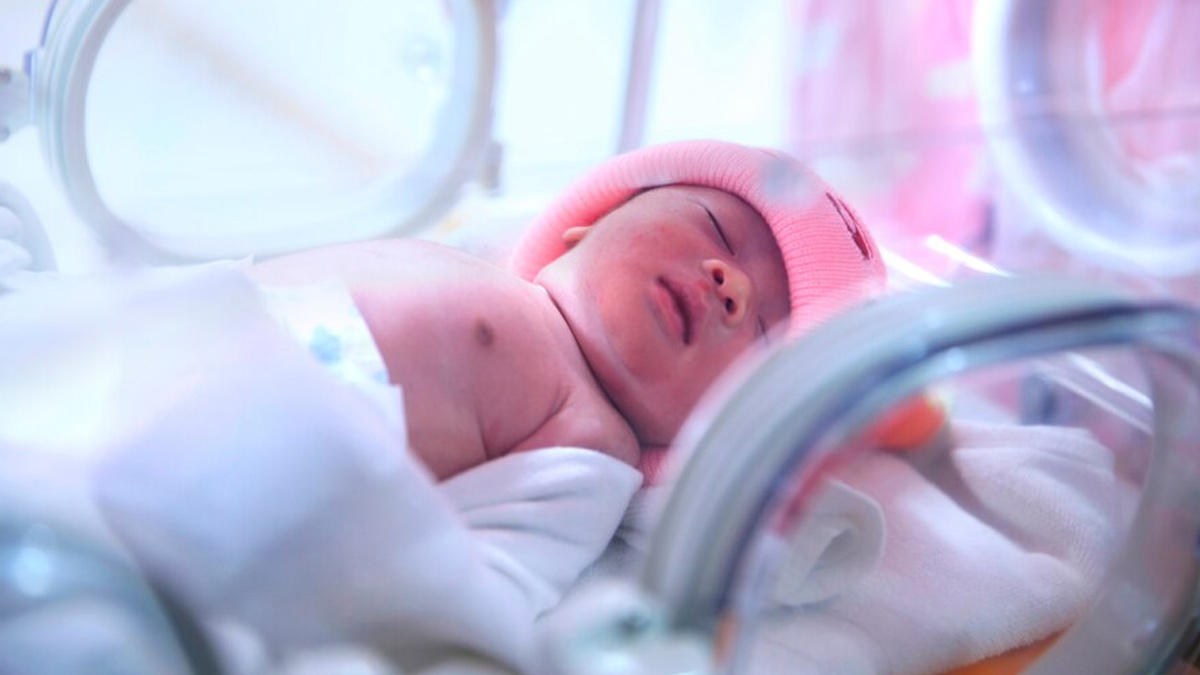
When you think of birth defects and physical malformation of the human body, what comes to your mind? Did you think of conjoined twins, or a baby born blind or without limbs? Here is a case of a baby born with a rare congenital condition that I'm sure requires an extremely wild imagination to guess.
Table of Content:-
Recently, Mr and Mrs Salian from Mumbai, welcomed their bundle of joy, their first child into this world. But their happiness soon turned to shock when they learned that their newborn had a congenital condition called Anorectal Malformation (ARM), which means that their baby was born without an anal opening.
To learn more about this case and the rare condition, the Onlymyhealth team spoke to Dr Nitu Mundhra, Consultant, Neonatologist and Lactation Expert, Wockhardt Hospital, Mira Road and Dr Bhavesh Doshi, Pediatric Surgeon, Wockhardt Hospitals, Mira Road who treated the baby.

Baby Born With Three Congenital Defects
Experts from the Seattle Children's Hospital define Anorectal Malformation as a congenital condition (present since birth) where the anus and rectum do not develop properly during fetal growth. This leads to a range of abnormalities affecting the lower gastrointestinal tract. These malformations can vary widely, from minor defects like a misplaced anus opening to more complex issues such as the absence of the anus altogether, which can be life-threatening. In the case of the Sailans, their baby was born with the latter.
Dr Nitu Mundhra shared, “ARM is rare, and often comes as a shock to parents as it may not be diagnosed in the antenatal USG scans. It’s a rare disease occurring in one in one lakh children."
As a common practice, if a baby is born with a birth defect, it is examined from head to toe to look for other abnormalities. " Since the baby had ARM, we immediately looked for other abnormalities in the delivery room." Turns out, the baby also had Hypospadias and a Tongue Tie.

Hypospadias
"The baby also had a bent over the penis and its urinary meatus was in an abnormal position," said Dr Mundhra. A study titled 'Worldwide Prevalence of Hypospadias' called it the most common congenital condition of the penis, characterised by the opening of the urethra located on the underside of the penis instead of at the tip.
Tongue Tie
"In a tongue tie, the tongue is attached to the floor of the mouth. This makes it impossible for the child to protrude their tongue which may lead to breastfeeding problems and speech difficulty," said Dr Mundhra.
A most agreed upon definition of tongue tie, medically known as ankyloglossia, is that it is a condition that restricts the movement of the tongue due to a short, thick, or tight band of tissue (lingual frenulum) connecting the underside of the tongue to the floor of the mouth.
However, an overview published by researchers Sarah Becker, Melina Brizuela, and Magda D Mendez, stated that the prevalence of tongue-tie varies from 0.1% to 10.7% partly because the medical community does not agree on any aspects of this condition. There is no widely accepted definition, classification system, diagnostic criteria, and when and how to treat it.

Treating Anorectal Malformation
The baby was immediately admitted to the Neonatal Intensive Care Unit (NICU) at Wockhardt Hospitals, Mira Road, and initiated feeding the baby in another way since breastfeeding was not feasible. After appropriate counselling of the parents, the baby underwent multiple surgeries.
ARM often requires surgical intervention to correct and requires a multidisciplinary approach involving paediatric surgeons, urologists, gastroenterologists and other specialists. Despite this, the child may need long-term medical care and support since ARM can have significant impacts on a person's bowel control, urinary function, and overall quality of life.
“The complete treatment of anorectal malformation was done in 3 surgical steps, said Dr Doshi:
- Colostomy: The colostomy was performed at birth. In this surgery, we have to make a temporary opening by making a bypass passage for stool, so we can start feeding the baby.
- Posterior Sagittal Ano Rectoplasty: At 2 months of age, a 4-hour-long surgery called Posterior Sagittal Ano Rectoplasty (PSARP) was performed where the new Anus was created at the normal position.
- Colostomy Closure: Two months after the second surgery, the child underwent the final surgery for ARM: Colostomy Closure. During the surgery, the opening in the abdominal wall was closed and the child could now pass motions from the normal opening.
As for Hypospadias, the baby received surgery for it upon turning 1 year old. Dr Doshi said, “Finally, at one year of age, the child again had to undergo major surgery to correct the bent-over penis and get the urinary opening to the normal position. After a 3-hour long surgery, the child was able to pass urine from the normal position at the tip of the penis.”
Sharing the good news, Dr Mundhra said, "After undergoing 5 surgeries, the child is one year old and able to achieve all milestones as per other babies its age. The baby would not have survived if treatment was not done at the right time."
Concluding the story, the Sailans expressed their gratitude towards the doctors for saving their precious child and giving the couple and their child a new lease on life. They said their baby is doing well now and is at par with the other kids of the same age.
Also watch this video
How we keep this article up to date:
We work with experts and keep a close eye on the latest in health and wellness. Whenever there is a new research or helpful information, we update our articles with accurate and useful advice.
Current Version